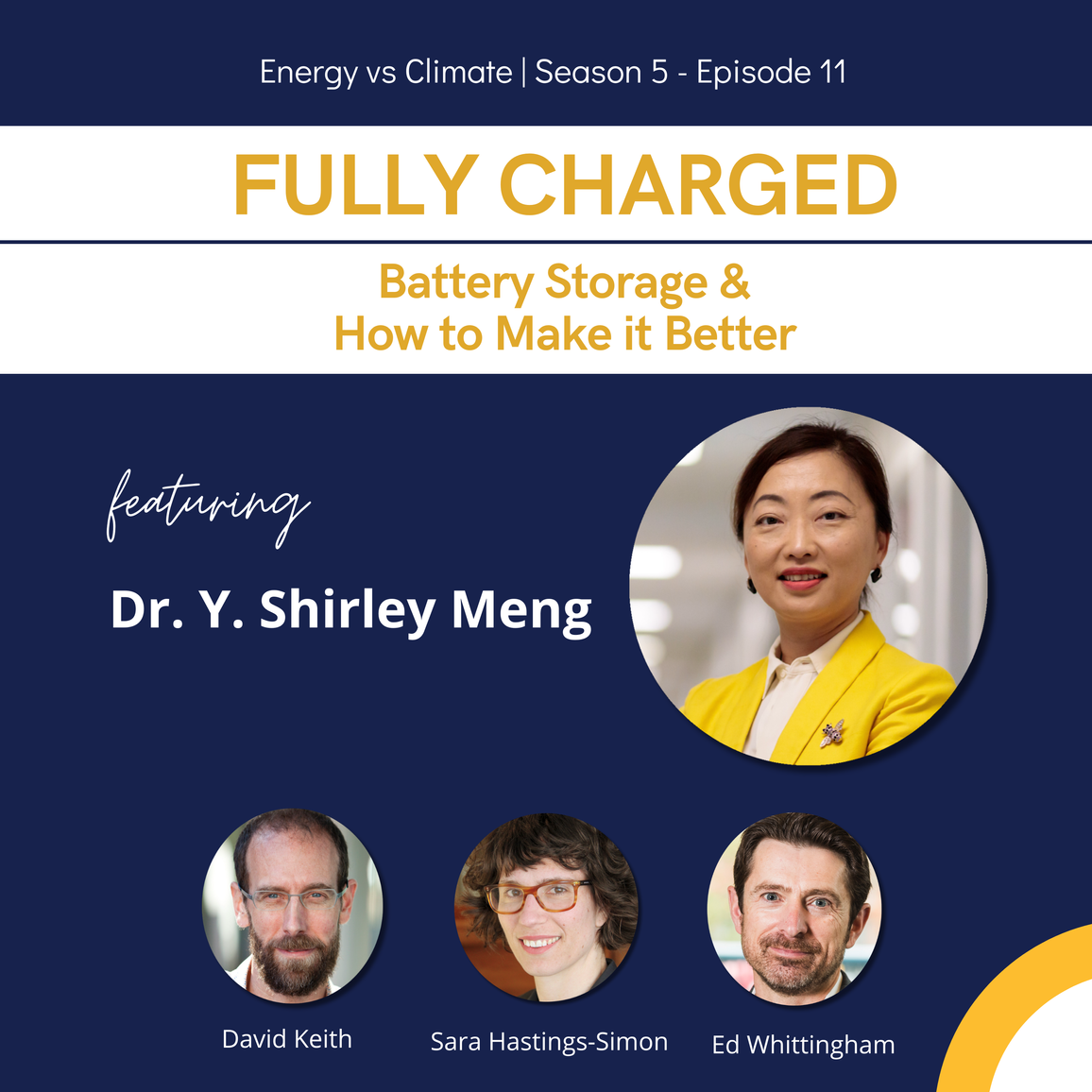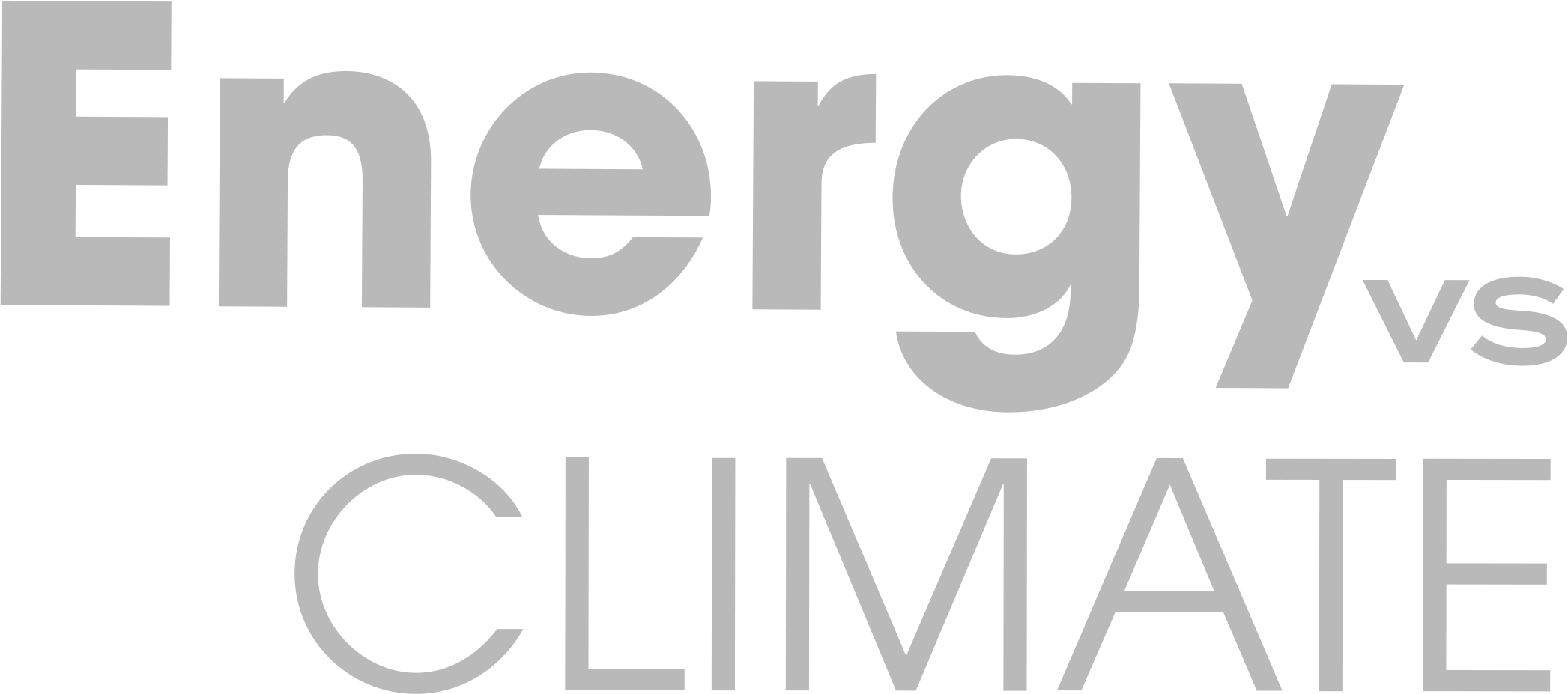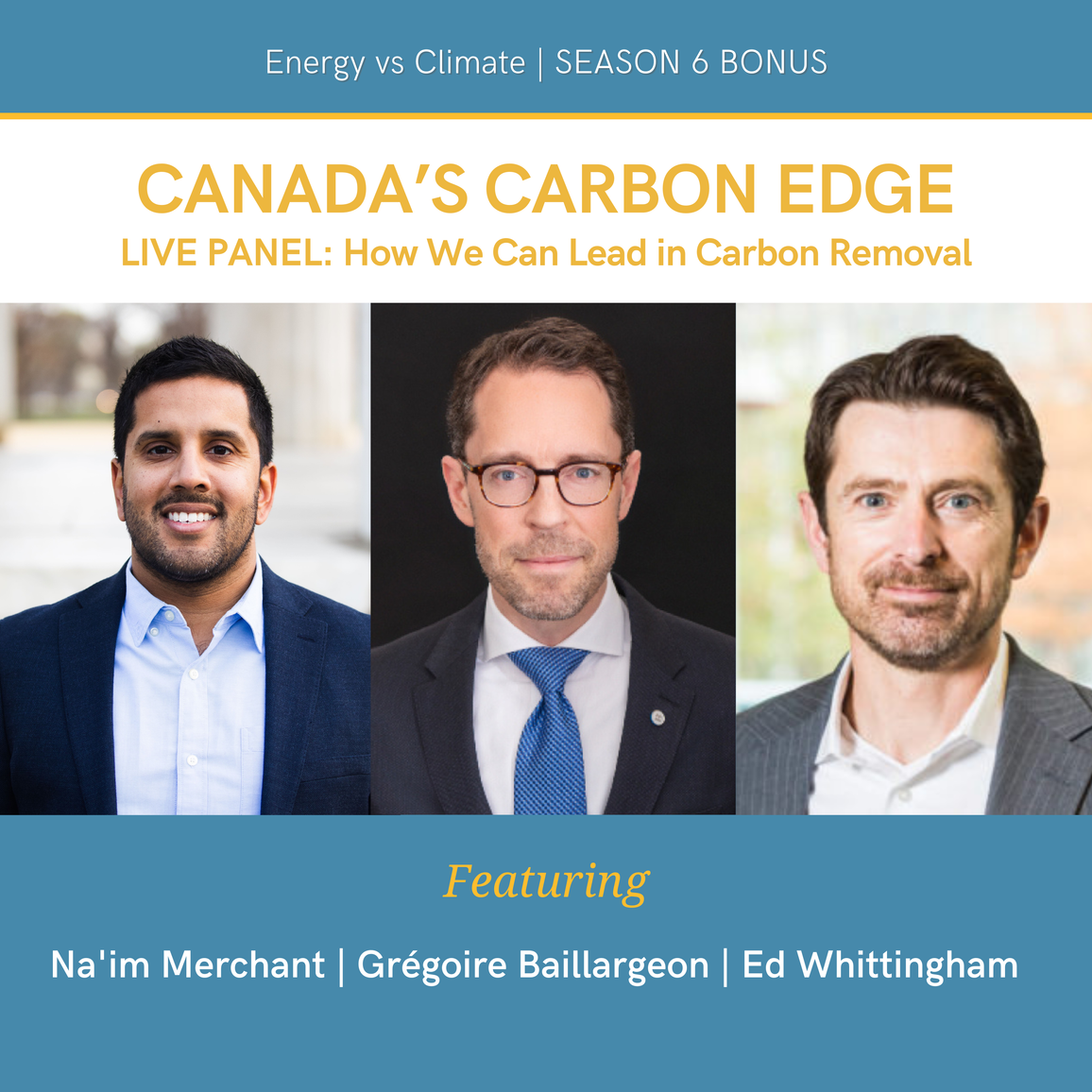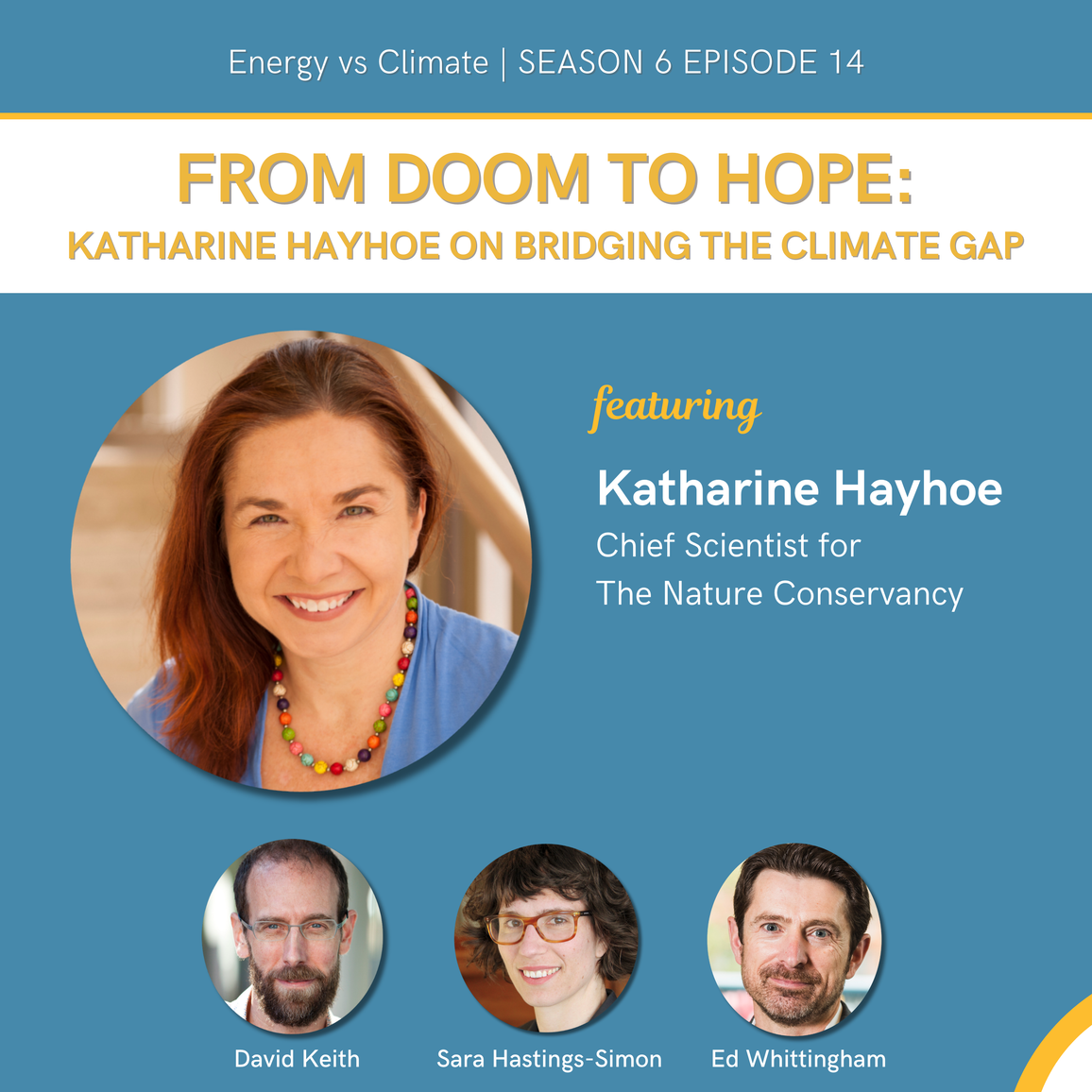FULLY CHARGED: Battery Storage & How to Make it Better

As wind and solar experience rapid growth and a growing share of power grids, the intermittent nature of renewables underscores the need for effective energy storage technology development. EV batteries will need their own tech advancement for nervous consumers with range anxieties to make the switch to electric mobility.
Hosts David, Sara, and Ed chat with battery storage expert Dr. Shirley Meng of the University of Chicago.
Show Notes:
(01:12) – Dr. Shirley Meng
(02:12) – How Lithium Ion Batteries Work
(02:22) – How sodium could change the game
(02:24) – How Solid-State Batteries Will Fuel America's Desire For Bigger, Better EVs
(08:20) – EvC: Understanding the Shift in Media Perception Towards EVs
(08:32) - Edwards and Sanborn Solar and Energy Storage Project
(17:25) – Lithium Facts - Gov't of Canada
(18:30) – IEA - Advanced Clean Technology Manufacturing
(20:55) – China’s first sodium-ion battery energy storage station could cut reliance on lithium
(24:30) – First Phosphate
(26:40) – China's EV strategy of going small and cheap to pay big dividends in Asia
(27:10) – Hydro‑Québec’s Center of Excellence in Transportation Electrification and Energy Storage
(31:55) – Indonesia’s grand ambition to become an EV leader
(38:00) – Inflation Reduction Act & EVs
(38:08) – Canada is pouring billions of dollars into the electric vehicle industry
(40:40) – Umicore confirms expansion of its EV battery materials production footprint
About Our Guest:
Dr. Y. Shirley Meng is a Professor at the Pritzker School of Molecular Engineering at the University of Chicago. She serves as the Chief Scientist of the Argonne Collaborative Center for Energy Storage Science (ACCESS) Argonne National Laboratory. Dr. Meng is the principal investigator of the research group - Laboratory for Energy Storage and Conversion (LESC), that was established at University of California San Diego since 2009. She held the Zable Chair Professor in Energy Technologies at University of California San Diego (UCSD) from 2017-2022.
Energy vs Climate: How climate is changing our energy systems
www.energyvsclimate.com
Twitter/X | Facebook | Instagram | Threads | Bluesky | YouTube
About Our Co-Hosts:
David Keith is Professor and Founding Faculty Director, Climate Systems Engineering Initiative at the University of Chicago. He is the founder of Carbon Engineering and was formerly a professor at Harvard University and the University of Calgary. He splits his time between Canmore and Chicago.
Sara Hastings-Simon studies energy transitions at the intersection of policy, business, and technology. She’s a policy wonk, a physicist turned management consultant, and a professor at the University of Calgary and Director of the Master of Science in Sustainable Energy Development.
Ed Whittingham is a clean energy policy/finance professional specializing in renewable electricity generation and transmission, carbon capture, carbon removal and low carbon transportation. He is a Public Policy Forum fellow and formerly the executive director of the Pembina Institute, a national clean energy think tank.


